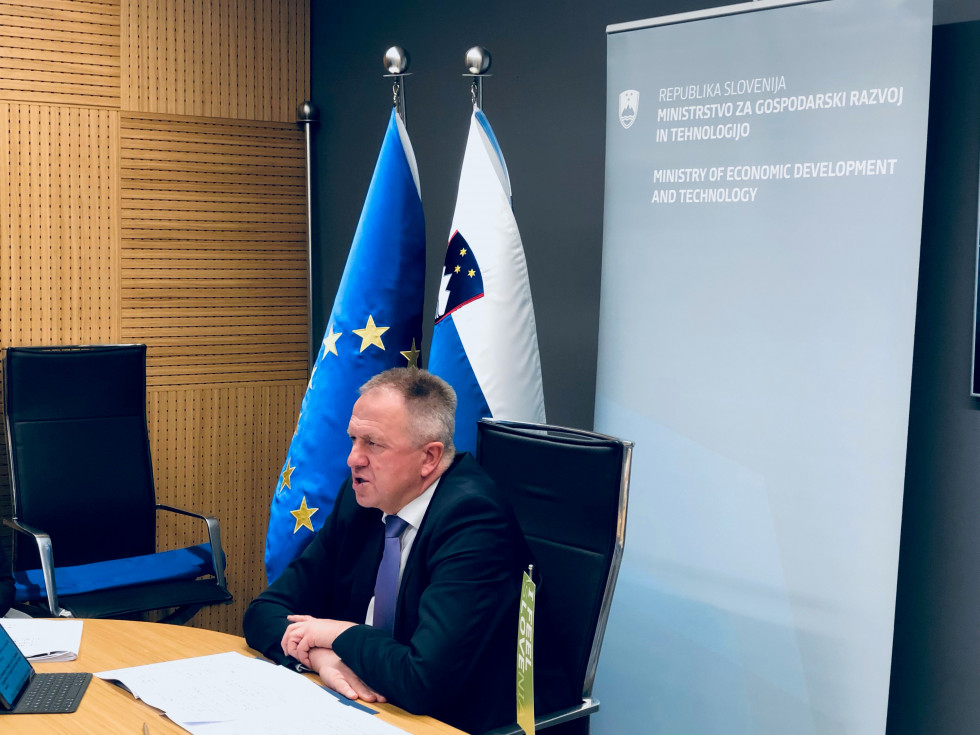By: UKOM
Minister Zdravko Počivalšek attended a video session of the Informal Ministerial Conference on European Tourism, a top-level debate. The Portuguese EU Council presidency convened a meeting at the initiative of some Mediterranean countries whose economies depend on tourism to improve the free movement of people within the EU’s internal and external borders, as well as possible additional EU tools to help launch the EU tourism industry in the short and medium term.
The objective of the extended discussion by the EU tourism ministers, Commissioner Breton and representatives of prominent international organisations such as the UNWTO and WTTC, is to find common solutions for more coordinated action to curb pandemics, protect public health and ensure people’s free but safe movement again, particularly in the EU internal market, which could significantly strengthen the functioning of the EU single market.
Given the experience of last year’s tourist season, which was at least partly solved by domestic tourism, Slovenia believes that it is first necessary to restore consumer confidence in the safety and predictability of cross-border tourist flows and services. Most European destinations depend on foreign tourism, which cannot be satisfactorily replaced by domestic tourism. Approaches to determining measures regarding the crossing of internal EU borders were different, as Member States adopted different rules, including quarantine and testing obligations, which, in Slovenia’s opinion, caused obstacles, confusion and dissatisfaction in crossing borders.
Slovenia considers that, in order to strengthen the EU single market, it is necessary to ensure coordination on vaccination certificates and harmonised procedures regarding rapid antigen tests. In Slovenia’s view, it is necessary to develop common guidelines with minimum safety requirements regarding prevention of the spread of the Covid-19 pandemic for providers of tourism and travel activities. In this respect, cooperation with the transport sector is important. It is essential to ensure predictable border crossing regimes and the use of all available risk mitigation tools, such as illness, vaccination or testing certificates. Introduction of educational tools for employees in the tourism sector is also needed.
Minister Zdravko Počivalšek pointed out that, “in the process of short-term recovery, the tourism ecosystem needs, above all, sufficient liquidity to enable companies to survive the crisis to the greatest extent possible. In addition, to restore the tourism ecosystem in the long term, greater synergies between national recovery programmes and the upcoming multiannual financial framework will be needed. However, small and medium-sized enterprises in this sector have to be provided with access to various sources of financing.”
Regarding the recovery of the tourist ecosystem in the medium and long term, Slovenia believes that it is necessary to focus on promoting the green and digital transition, innovative business transformations and implementation of new business models, as well as promoting development of relevant skills in the tourism ecosystem to face the digitalisation and sustainable development challenges. Minister Zdravko Počivalšek highlighted as key “the cooperation and joint efforts for the preparation of the European Tourism Agenda 2050. In fact, sustainable tourism is one of the priorities of the EU Council presidency in the second half of the year,” the minister added.

